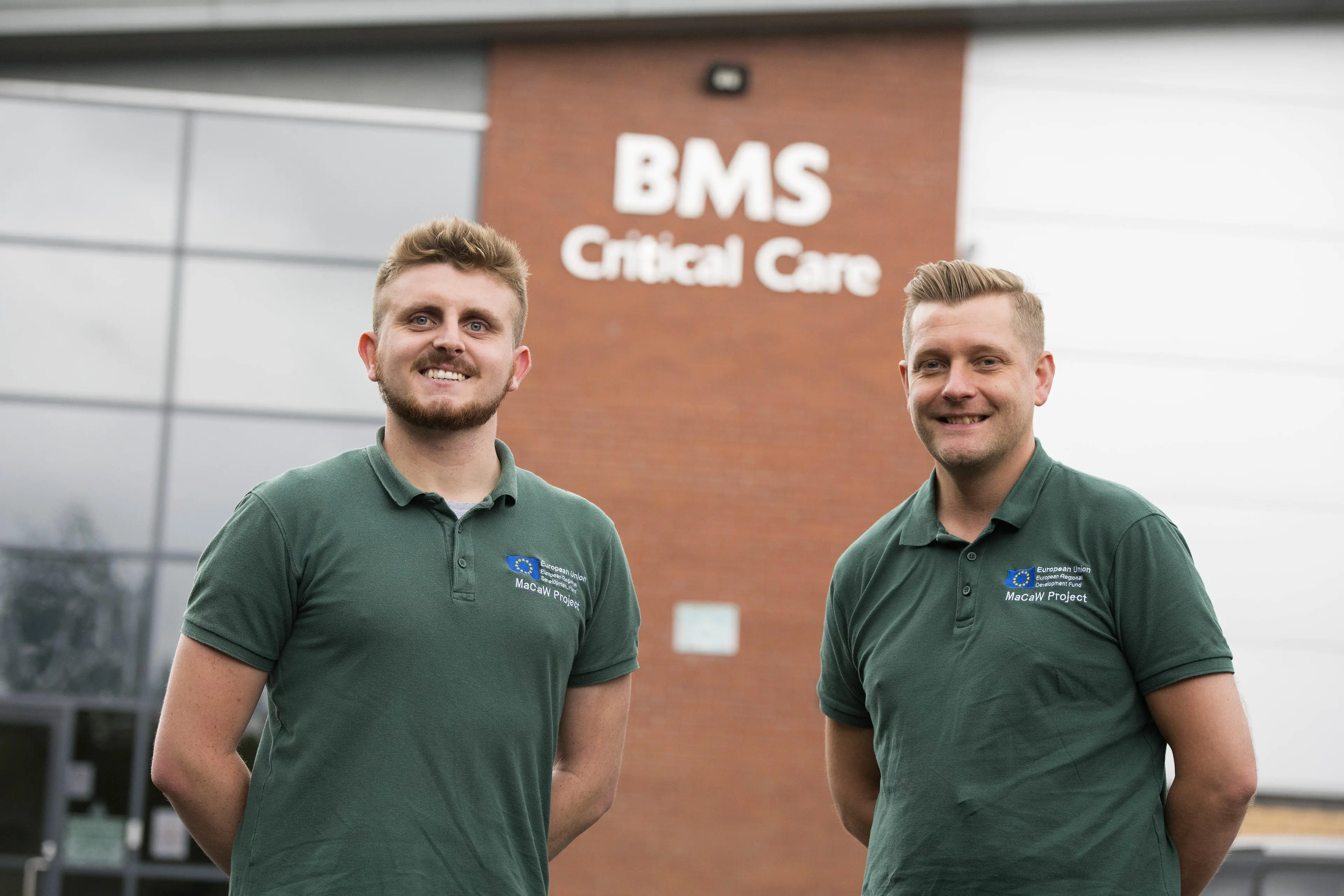A medical products supplier has taken a major step towards shrinking its carbon footprint, thanks to the Making Carbon Work (MaCaW) project.
Blackburn-based BMS Critical Care worked closely with MaCaW’s expert advisers, whose recommendations are expected to reduce the company’s energy usage by around 20 per cent.
The measures follow the government’s recent announcement of a new plan to tackle climate change, which aims to reduce UK greenhouse gas emissions to almost zero by 2050, replacing the previous target to reduce emissions by 80 per cent by the same year.
Analysing the company’s operational and energy requirements
Established in 1984, BMS has a nine-strong workforce which supplies disposable medical products to hospitals. It signed up to the MaCaW project, which was set up to help Lancashire SMEs move to a low-carbon model, after reading up on the benefits of the support on offer.
The five-month process saw MaCaW Business Engagement Officer Mark Nelson, Auditor Peter Burn and Project Manager Joshua Balmer working closely with the company to produce a detailed analysis of data and a carbon assessment audit.
The team then calculated the business’ carbon footprint and detailed how best to reduce its energy usage and overall carbon emissions.
The guidance involved straightforward behavioural changes – such as creating a formal energy management plan and adjusting central heating controls. As well as cutting energy costs, the changes will help BMS to be more competitive in public sector procurement tenders, many of which now ask for evidence of carbon cutting measures.
Delivering real commercial benefits
BMS Financial Controller Carrie Taylor said: “The MaCaW team were great to work with and they made things as simple and efficient as possible, providing us with the findings in a clear, easy to understand format. They then supported us in understanding and implementing the findings.
"The expertise has helped us to identify practices that we wouldn’t otherwise have been able to – particularly regarding our heating controls. "
“Calculating our carbon footprint baseline will help us in future tendering processes, as will evidence that we have implemented strategies to reduce our emissions. Other recommendations will help us reduce our energy usage and therefore cut overhead costs significantly.”
Mark Nelson said: “By going through this process, BMS has been able to gain a competitive advantage when tendering for public sector contracts. The team can show that they are committed to reducing their carbon footprint, meeting certain corporate social responsibility (CSR) elements of tenders and being able to demonstrate that they have been through an accredited project.
“We also made recommendations to reduce their energy usage and therefore cost savings both now and in the future, which highlights the real long-term benefits to be had by teaming up with MaCaW.”
MaCaW is a University of Central Lancashire (UCLan) project, an industry and academic collaboration funded by the European Regional Development Fund (ERDF) alongside UCLan, and supported by Boost; Lancashire’s business growth hub.
For more information please email macaw@uclan.ac.uk.

